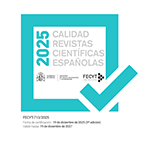Ortho-Heterodox Biases and the Economist Algorithms of ChatGPT
Abstract
Recommendations for economic policies can be based on different theoretical perspectives and may present hidden biases. Identifying these biases is challenging when they are embedded in recommendations from sources with high technological and social disruptive potential, where a good level of impartiality is expected, such as contemporary large language models. Thus, a questionnaire was administered to economists affiliated with the Brazilian academic community to assess their perception of orthodox/heterodox biases in economic policy recommendations derived from interactions with ChatGPT. The results showed that: i) there is still no consensus on the concepts of orthodoxy and heterodoxy in Brazil; ii) there are indications of a positive relationship between how self-proclaimed heterodox (orthodox) an economist is and how heterodox (orthodox) the perceived bias in an economic policy is; iii) it was not possible to identify a consistently orthodox or heterodox bias in ChatGPT's recommendations, which exhibited a good degree of impartiality.
Downloads
Article download
License
In order to support the global exchange of knowledge, the journal Iberian Journal of the History of Economic Thought is allowing unrestricted access to its content as from its publication in this electronic edition, and as such it is an open-access journal. The originals published in this journal are the property of the Complutense University of Madrid and any reproduction thereof in full or in part must cite the source. All content is distributed under a Creative Commons Attribution 4.0 use and distribution licence (CC BY 4.0). This circumstance must be expressly stated in these terms where necessary. You can view the summary and the complete legal text of the licence.
Iberian Journal of the History of Economic Thought is an open access journal that does not charge authors for article processing (submission, review or editing) or publication.









